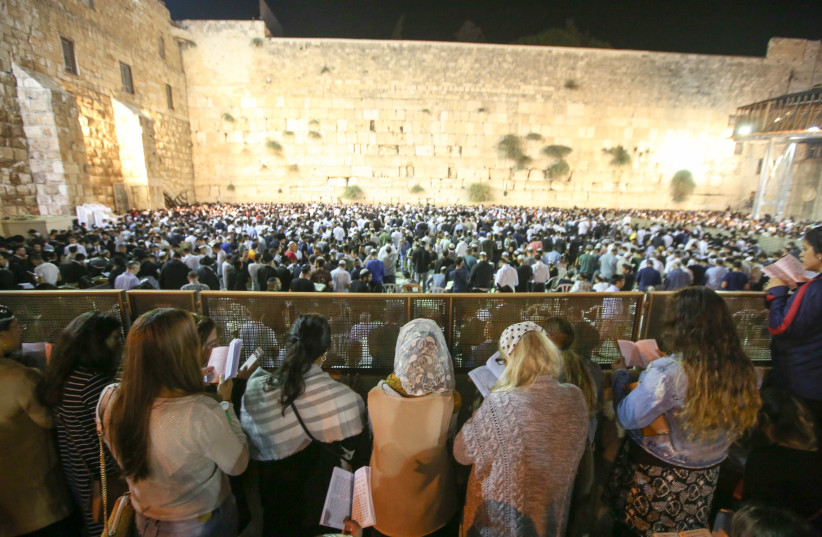Yom Kippur, the Day of Atonement and the holiest day in the Jewish calendar, is a time for Jews to search inward and atone for their sins, individually and collectively.
According to Jewish tradition, the origins of Yom Kippur can be traced to Moses’s descent from Mount Sinai with the Ten Commandments. When he saw the People of Israel worshiping a golden calf, he smashed the tablets in anger, then ascended the mountain again to pray for forgiveness for himself and his people.
Similarly, we too are required to seek forgiveness for the wrongs we have done, wittingly or unknowingly, over the past year.
In the elegant words of the late Rabbi Jonathan Sacks, “To those who fully open themselves to it, Yom Kippur is a life-transforming experience. It tells us that God, who created the universe in love and forgiveness, reaches out to us in love and forgiveness, asking us to love and forgive others. God never asked us not to make mistakes. All He asks is that we acknowledge our mistakes, learn from them, grow through them, and make amends where we can.”
Just as individuals can acknowledge their mistakes, so can larger bodies – even countries. The State of Israel, as wonderful as it is, has many reasons for soul-searching this year. Here are some sins of commission and omission of which the Israeli people and government – collectively – might be remiss and in need of penitence.

Ashamnu
• Although a fifth election in three and a half years might have been unavoidable given the make-up of the last Knesset, we are wasting hundreds of millions of shekels that we all know could be better spent during these difficult times.
Tafalnu sheker
• The rhetoric in the current election campaign has plunged to a shameful ebb. Have we not learned the lesson that, in the words of former Jewish Agency board chairman Michael Siegel, “The Temple falls when Jews fight Jews”?
Kizavnu, latznu
• Israeli tribalism and the delegitimization of the other are rampant. As social scientist Dr. Shuki Friedman recently warned, “If Israeli society cannot rise above the tribal identities of its diverse population groups and find a common ground on which the State of Israel can stand firm, it will simply fall apart.”
Tzararnu
• Israel is increasingly alienating Diaspora Jewry, the majority of whom are non-Orthodox and want a say in our shared homeland.
Maradnu
• We have not done nearly enough to stop violent crime, especially in the Arab sector, where at least 75 people have been murdered in 2022.
Rashanu
• We have also not done enough to stop domestic violence. Four femicides were reported in just 10 days in June.
Gazalnu
• We have not made significant progress in the battle against poverty. The aid organization Latet reports that more than 2.5 million Israelis live in poverty, more than 1.1 million of them children.
The list could go on – insufficient measures to curb the soaring cost-of-living and the price of housing, the situation of the elderly and Holocaust survivors and the battles against traffic accidents and climate change.
The point here is not to paint a bleak picture of Israel. We’re well aware of its awesome virtues. But at the same time, we can demonstrate that as a Jewish state, we have plenty of room for improvement and repair.
Maimonides taught us that the process of teshuvah (repentance) should be accompanied not only by penitential prayer but also by the giving of tzedaka (charity), particularly on the day before Yom Kippur.
Just as we ask for divine pardon, so are we entreated to beg forgiveness from one another, from family and friends, colleagues and neighbors. But that alone is not enough. We need to work to be better, to strive to be the state that we know Israel has the potential to become, one that is proudly Jewish but also a strong democracy in the Middle East.
As the late Rabbi Adin Steinsaltz succinctly put it, “essentially, repentance is a feeling of the heart – regret over the past and a resolution for the future.”
In the next 24 hours and in the coming year, let’s give change a chance.
